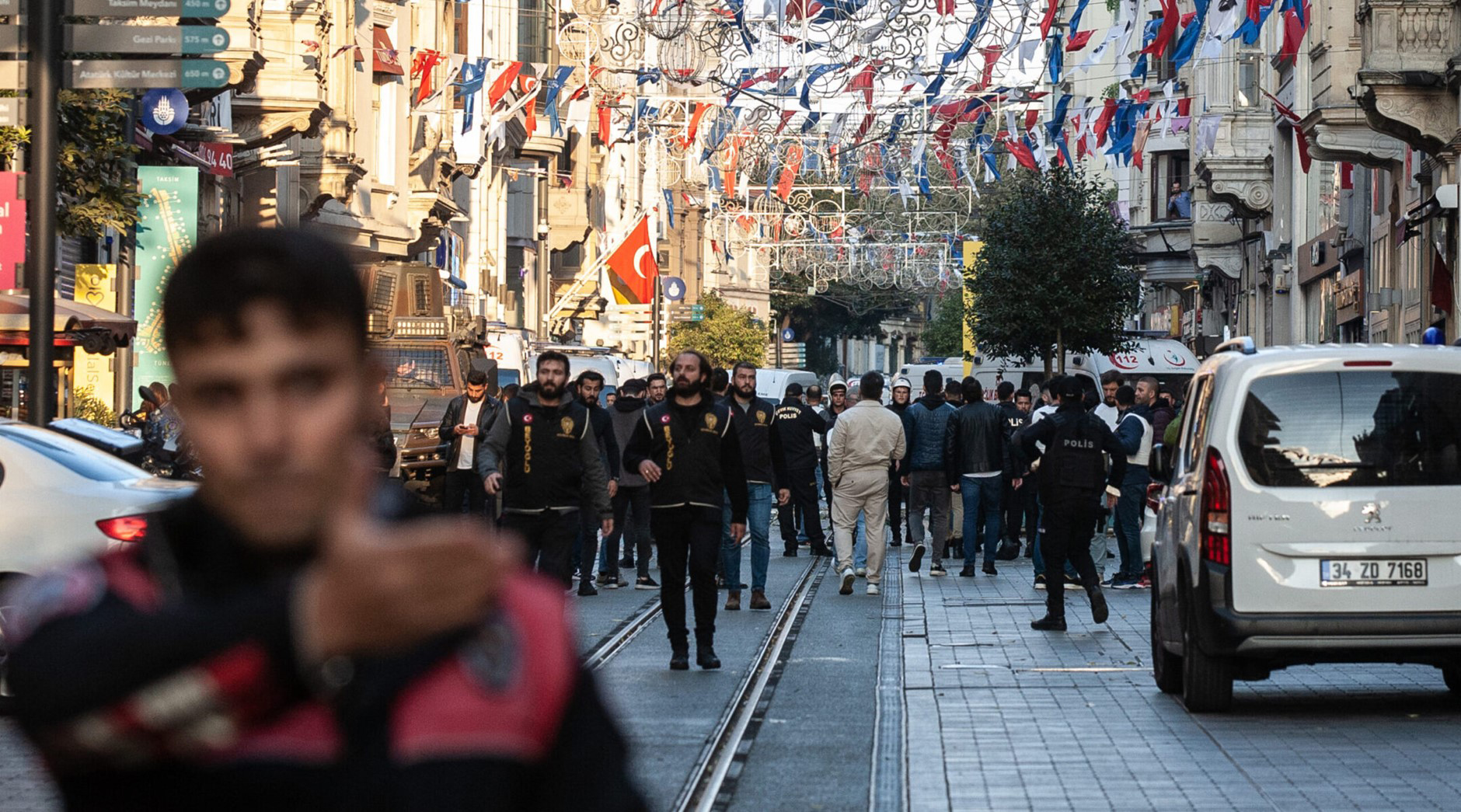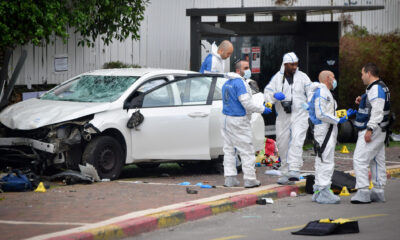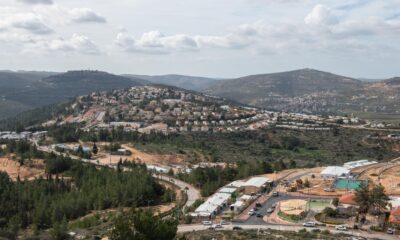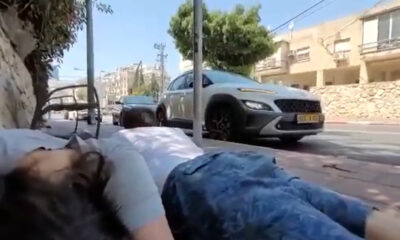
News

Istanbul blast rips tourist centre apart
Published
1 year agoon
Almost everyone who has visited Istanbul would recognise the busy pedestrian street near Taksim Square where a bomb exploded on 13 November, killing six and injuring more than 80.
But for one South African Jewish woman, it hit especially close to home. “For 18 months, I lived just off Istiklal Street, around the corner from the site of the explosion. I would walk past that exact spot daily, sometimes multiple times a day,” she says, speaking on condition of anonymity.
“I would go to Istiklal for everything from banking to grabbing a coffee, catching the subway to work, and going out for a meal. Basically anything you need can be found and done there. The street is a long pedestrian avenue stretching from Taksim Square to Galata. It’s a shopping hotspot and somewhere people go to eat, drink, and party. There are two major subway stations on either end. You’ll find shops like H&M and Zara along with small souvenir and jewellery shops. Carts selling roasted chestnuts and sesame breads are dotted along the avenue, as well as busking musicians.
“Istiklal symbolises a cultural and religious meeting point for Turks in that people from all sectors of society frequent the area,” she says. “Just off the avenue, you’ll find fancy hotels, mosques, low-income neighbourhoods, historic sites, conservative neighbourhoods, fine dining restaurants, and museums. It truly is a kaleidoscope of all Istanbul has to offer, and I’d say is also a source of pride for Istanbulites.”
Her friends living in the area “are shocked and nervous, but they’re resilient, and have lived through tumultuous times in the city, including the Gezi Park protests in 2013 and the attempted coup in 2016. They say things have quickly returned to ‘normal’ because people cannot avoid Istiklal Sreet, it’s too central a hub.”
She says the area is always crowded with Turks and tourists alike. “It’s always buzzing, and therefore [a terror attack] would cause maximum fear and casualties. The attack comes just as Turkey’s tourism sector is beginning to rebound from the COVID-19 pandemic. This attack will certainly set it back. For residents, this attack shatters the sense of calm they’ve enjoyed for the past five years since the last major terrorist attack in Istanbul in 2017. Turks are also worried about the possibility of further attacks ahead of the presidential and legislative elections next year.”
Tens of thousands of tourists pass through the thoroughfare every day. Another South African Jewish man in Johannesburg, also speaking anonymously, says, “We loved our visit to Istanbul in 2014. We stayed on Istiklal Street, and found the energy and vibe to be unlike anything we had experienced before. It’s hard to believe that this special part of the unique city of Istanbul could be attacked in such a horrific manner. It’s upsetting that these extremists are destroying a secular, vibrant country.”
A video on social media showed a massive red and orange ball of fire and a loud bang as the explosion erupted, with people fleeing. Later images and videos showed victims lying motionless on the ground as first responders rushed to their aid. An image of forensic teams working at the site showed an abandoned baby pram amidst debris. The incident has been deemed a terrorist attack, according to Turkish Vice-President Fuat Oktay.
CCTV footage shows a woman sitting on a bench for more than 40 minutes and then getting up one or two minutes before the explosion, leaving a bag behind, according to Turkish Justice Minister Bekir Bozdağ. He said Turkish security forces believe the woman is the suspect, and officials are investigating her.
Istanbul Governor Ali Yerlikaya confirmed those killed as a woman and her daughter, a man and his daughter, and a man and his wife.
According the Jewish Telegraphic Agency, the blast took place as Istanbul’s Jewish community was hosting a Jewish culture day, in which they welcomed large crowds into the Neve Şalom synagogue. The event was cut short as news spread about the blast, which took place just blocks away.
Neve Şalom was one of two synagogues bombed during a 2003 wave of attacks that killed 55 people in two days. The event was to be followed by a commemoration of those attacks, which killed six Jews in the synagogue bombings.
“Tonight, as we were to mark 19 years since the heinous attack on the Neve Şalom and Bet Yisrael synagogues in Istanbul, there was another bombing in Istanbul. Say no to violence. Say no to terrorism! Çok geçmiş olsun İstanbul [get well soon Istanbul],” tweeted Rabbi Mendy Chitrik, the chairperson of the Alliance of Rabbis in Islamic States, who lives in Istanbul.
Over the years, Istanbul has been the site of attacks from a variety of actors, including the Islamic State (ISIS), Al-Qaeda, and the Kurdistan Workers Party (PKK), a Kurdish separatist group. Israelis have been caught in the crossfire, such as in 2016, when an ISIS-backed suicide bomber blew himself up on Istiklal, killing three Israelis and one Iranian.
As Turkish-Israeli relations have warmed in the past year, Turkey has become a major tourism hotspot for Israelis, with nearly 7% of Israel’s population visiting Turkey this past summer, according to the Jerusalem Post.
Local political analyst Steven Gruzd says, “This isn’t the first high-profile attack in Turkey – remember the deadly Istanbul airport attack in 2016. Like this recent one, no one claimed responsibility. So there are a number of possibilities. It could be ISIS, Iran, or its proxies, or the PKK. The latter has denied involvement and sent condolences to the bereaved.
“Terrorists target tourist areas to get maximum publicity, sow fear, and create chaos,” he says. “However, I’m not sure why this would happen now. It could be connected to Turkey’s involvement in Syria. It could be Kurdish separatists, or it might even be connected to Ukraine. In June this year, Israel issued a warning to tourists in Turkey that an attack by Iran might be imminent, but I don’t see a direct connection to this incident.”
After the explosion on Sunday, Israeli security officials issued a travel warning for Turkey, and urged Israelis who were already in Istanbul to stay in their hotels and follow Turkish law enforcement’s instructions.
Many South Africans also visit Istanbul, but “at this stage, I cannot comment on whether people should avoid travelling to Turkey”, says the Community Security Organisation’s Jevon Greenblatt. “The truth is that attacks like this can happen anywhere in the world, including South Africa.
“My advice is that people should go about their business without fear, while at the same time exercising vigilance, have a plan to get away from any dangerous situation they may encounter, report anything suspicious to the local authorities or security, and finally, research any location they may be travelling to in order to understand risk factors and avoid no-go zones. We cannot live in fear, but we also mustn’t become complacent.”










